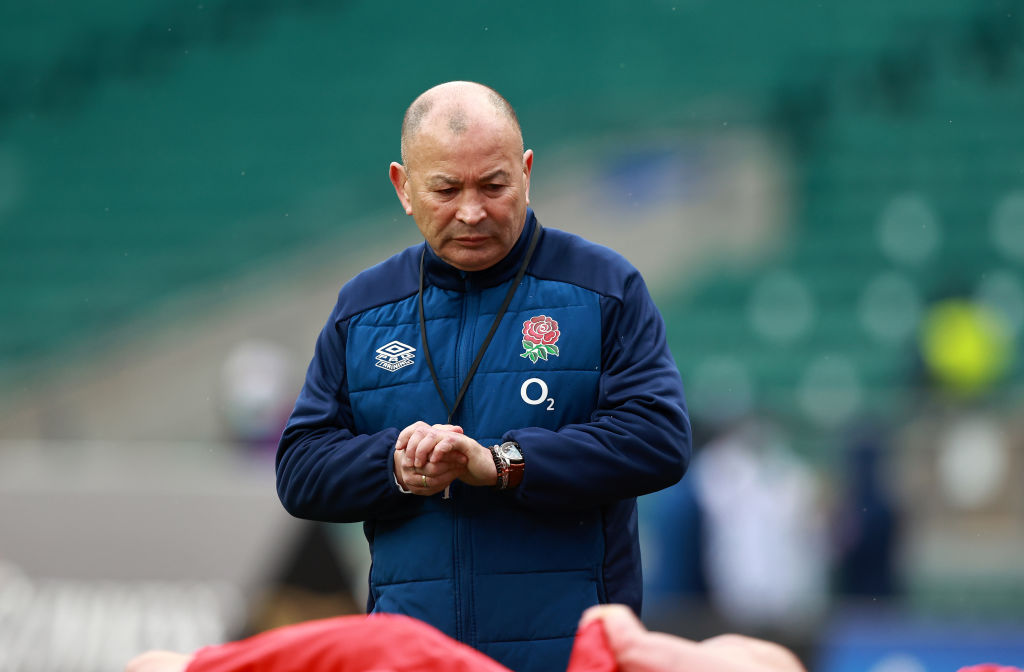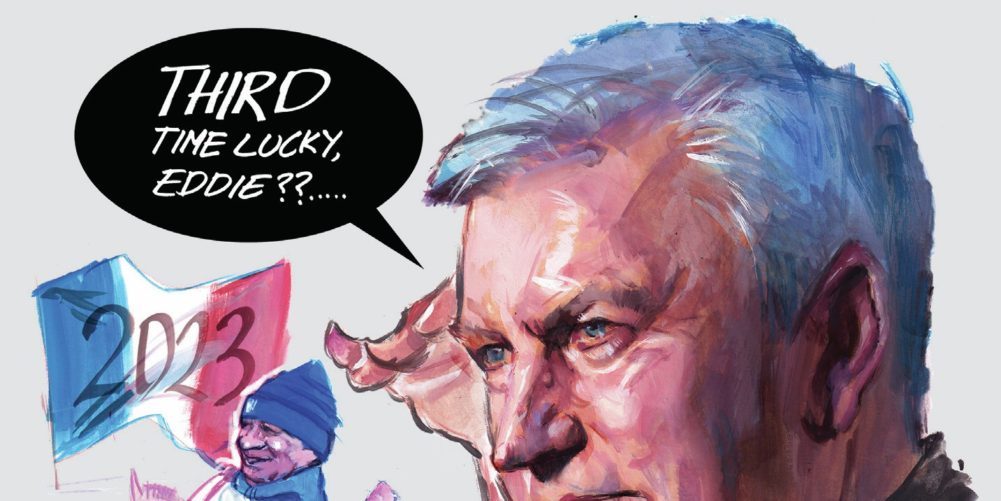SOUTH Africa bucked the overall World Cup trend twice at the 2019 tournament. The first time they did so was by appointing Rassie Erasmus as head coach in March 2018, a mere one year and eight months before he took the Springboks to their third, and most decisive, World Cup final success – with England their victims.
The general consensus before Erasmus was that two years is far too short a time in which to build a world champion side, and the fact that he did it in 20 months has led to a reassessment.
The second trend that was bucked is that the 2019 Spring- boks became the first side to win the World Cup after losing a match in the pool round – in this instance, a 23-13 defeat by the defending champions, New Zealand.
However, if England back Eddie Jones to win the World Cup in 2023 – despite his side coming up short against South Africa in the 2019 final in Yoko- hama – they will also be bucking a trend.
In this instance it would be changing the harsh reality that no coach of a defeated World Cup final side has come back to win the trophy. For the record, the nine coaches of losing finalists are:
Jacques Fouroux (France 1987), Geoff Cooke (England 1991), Laurie Mains (New Zealand 1995), Jean-Claude Skrela (France 1999), Eddie Jones (Australia 2003), Brian Ashton (England 2007), Marc Lievremont (France 2011), Michael Cheika (Australia 2015), and Eddie Jones (England 2019).
Having lost out twice, with both Australia and England, Jones is in a unique club of his own – and he should wear it as a badge of pride, because there are only 17 head coaches who have made it to one World Cup final, let alone two, and thousands who have not come anywhere close.
However, with a competitor like Jones, being on the wrong side of the ledger will doubtless be what drives him on – and after the Red Rose defeat in Japan it is what made him prepared to accept the painful prospect of what he described as ‘kicking stones down the road the next four years'.
It is now two years down that road, and the problem for his employers at the RFU is that after the losses to Scotland and Wales, which have derailed this Six Nations campaign, the stones are beginning to look more like bloody great boulders.
The issue that the RFU chief executive, Bill Sweeney, faces is that Jones is looking almost as immovable as those boulders, not only in terms of his intractable selection policy, but more significantly as a coach who cannot be shifted contractually without a massive financial penalty clause being invoked. This stems from the premature, hugely expensive, and totally avoidable error by Sweeney to extend Jones' £750,000 annual contract as England coach until the end of the 2023 World Cup.
Initially, Jones' contract was until the end of this season, which sensibly gave the RFU the option of keeping him on, or parting ways, two years before the tournament starts in France.
However, by awarding Jones another four-year term a couple of months after the 2019 World Cup final defeat, Sweeney has made him virtually undroppable. This will backfire on the chief executive unless Jones undertakes a rapid and successful rebuild of the England team.
Among the questions that will be raised is why, rather than commission a report into England's 2019 campaign, including Jones accounting for selection and logistical controversies – such as taking only two scrum-halves and two tightheads to Japan, and arriving late for the final – Sweeney jumped the gun.
Now, unless the chief executive wants to shell out about £1.5m as a severance package for Fast Eddie, the RFU is handcuffed to the head coach.
Irrespective of the result against France, there have been clear signs during his sixth year in the England job that Jones has been finding inspiration hard to come by.
This has been at its most evident in his reactive rather than proactive response to rebuilding the team.Rather than using the Autumn Nations Cup as an opportunity to experiment with new players, he squandered it. Only now, with the 2021 Six Nations campaign on the rocks, and public criticism growing, has he decided – tentatively – to start the rebuild.
Promising prospects like Max Malins, Ollie Lawrence, Joe Simmonds, Marcus Smith, Ben Earl, Sam Simmonds, Ted Hill, Lewis Ludlum, Alex Moon, Dave Ewers, Ollie Devoto, Joe Marchant, Piers O'Conor and Harry Randall should all have been playing throughout the autumn tournament.
It explains why Jones sounded a hollow note when he said this week how much he regretted the Saxons being shelved, because the autumn tournament presented him with a classic opportunity to adopt a reserve/Saxons selection policy – in the same way as France, Wales, and Ireland approached it.

Jones also sounded unconvincing when he sought to defend his selection methods in a radio interview on Thursday on the BBC's Today programme, stating that he is not prepared to take selection experiments with young players for fear of inflict.
He said: “Sometimes when you put the young player in, and he's not ready, it can be really detrimental to his career. So, we are really cognisant of finding the right time to bring young players in.”
These judgement calls are what coaches like Jones are paid a fortune to make – and yet he has prevaricated where Wales coach Wayne Pivac has blooded 20-yearold wonder wing Louis Rees-Zammit, while Scotland coach Gregor Townsend has done the same with 21-year-old tyro centre Cameron Redpath.
A serious impediment to England's 2023 World Cup ambitions is that neither Sweeney, nor anyone else within the RFU hierarchy, has the rugby knowledge to become either a sounding board for Jones, or to challenge his ideas.
Instead, as Sweeney looks towards the horizon where the 2023 World Cup shimmers, the RFU mantra seems to be an unquestioning ‘In Eddie We Trust'.
What the rest of us should be asking is whether it is because the RFU cannot afford to pay off his contract, or due to a firm conviction that it will be third time lucky for Jones in his quest to win the Webb Ellis trophy?
For it to be the latter, Jones would not be bucking the trend so much as vaporising it.



























